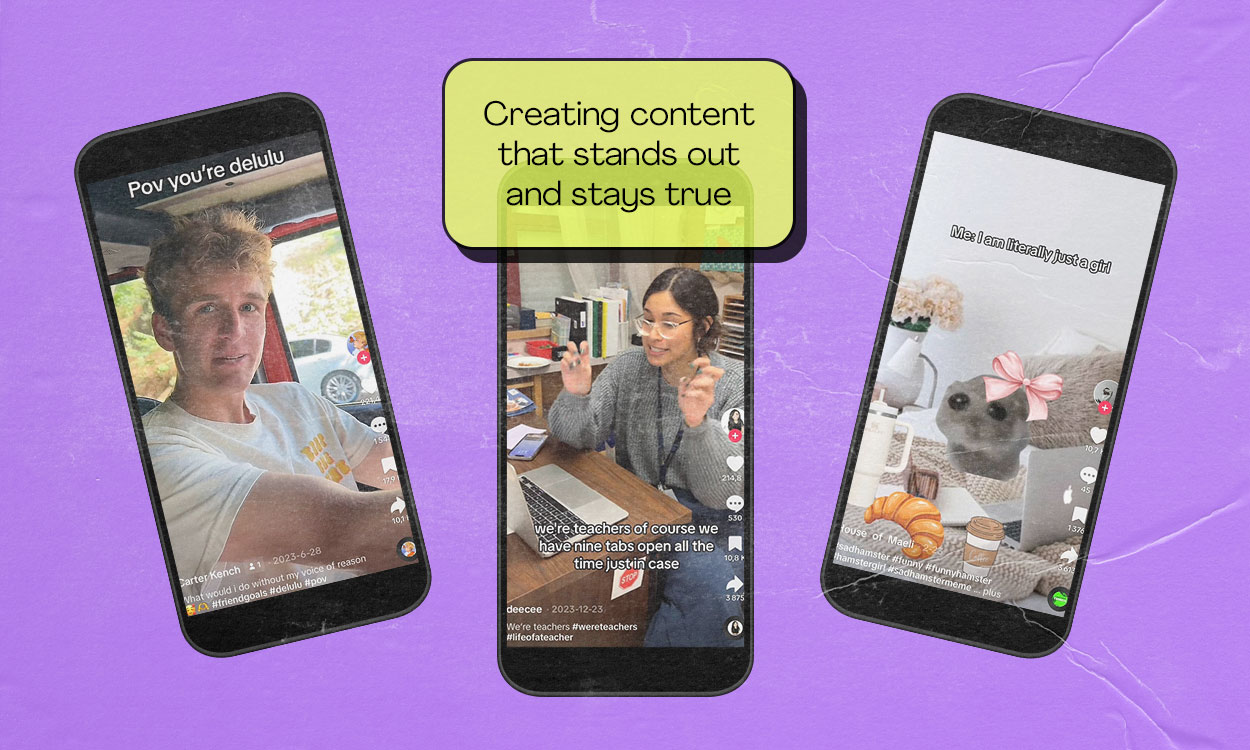Tell Me You're [X] Without Telling Me You're [X]: The Viral Trend Explained
Tell Me You're [X] Without Telling Me You're [X]: The Viral Trend Explained

You've probably scrolled past it dozens of times: "Tell me you're a millennial without telling me you're a millennial." Or maybe "Tell me you're tired without telling me you're tired." This seemingly simple phrase has taken over social media platforms, sparking millions of creative responses and becoming one of the internet's most enduring trends.
But what exactly does this phrase mean? Where did it come from? And why has it captivated the attention of millions across TikTok, Twitter, and Instagram? Let's dive deep into the phenomenon that transformed indirect communication into viral entertainment.
What Does "Tell Me You're [X] Without Telling Me You're [X]" Mean?
At its core, this phrase is a challenge to reveal something about yourself indirectly. Instead of making a direct statement like "I'm exhausted," participants describe behaviors, characteristics, or situations that obviously indicate their state without explicitly saying it.
For example:
- Direct: "I'm a parent."
- Indirect: "My phone gallery is 98% pictures of my kid doing absolutely nothing special."

This linguistic structure is called a snowclone—a fixed phrase template where one word can be substituted to create variations. The beauty lies in the creativity required to convey your identity, profession, or situation through context clues rather than explicit statements.
The Origins: How It All Started
While the phrase feels ubiquitous now, its journey to viral fame began relatively recently. According to Know Your Meme, the earliest documented version appeared on Twitter in May 2019 when user @myjinseuphoria tweeted: "If you see this, you are obligated to tell me your bias without telling me their names."
However, the trend didn't explode until December 2020, when Twitter user @fluffyfitz posted: "tell me you're lgbt without telling me you're lgbt." That single tweet garnered over 53,000 likes and 29,000 retweets within two weeks, catapulting the format into mainstream social media consciousness.
From Twitter to TikTok: Multi-Platform Domination
Shortly after Twitter's explosion, TikTok users embraced the trend with characteristic enthusiasm. The hashtags #tellmechallenge and #tellmewithouttellingme accumulated millions of views, with creators producing increasingly clever and entertaining responses.
Even major brands jumped on board. Beer company Michelob Ultra posted variations asking customers to "Tell us you drink ULTRA without telling us you drink ULTRA," demonstrating how the format transcended personal expression to become a marketing tool.
Why This Trend Became Massively Viral

Several psychological and social factors contributed to this trend's explosive popularity:
1. Universal Accessibility
Anyone can participate regardless of age, location, or background. The template is simple enough for immediate understanding but flexible enough for infinite creativity.
2. Community Building Through Shared Experiences
The format creates instant connection. When someone posts "Tell me you're an introvert without telling me you're an introvert," thousands of introverts recognize themselves in the responses, fostering a sense of belonging.
3. Creative Expression and Wit
The challenge rewards cleverness. The more subtle and relatable your response, the more engagement it receives. This gamification of communication naturally encourages participation.
4. Low Barrier to Entry
Unlike dance challenges or elaborate video productions, this trend requires only text or a simple video explanation. The accessibility democratizes viral content creation.
Popular Variations and Examples
The template's versatility has spawned countless variations across every conceivable category:
Generational Identity
- "Tell me you're Gen Z without telling me you're Gen Z" → "I unironically use 'rizz' in everyday conversation."
- "Tell me you're a millennial without telling me you're a millennial" → "I still reference Vine on a daily basis."
Professional Life
- "Tell me you're a teacher without telling me you're a teacher" → "I've said 'I'll wait' in complete silence at least twice today."
- "Tell me you work from home without telling me you work from home" → "I've worn pajama pants to three Zoom meetings this week."
Personality Traits
- "Tell me you're an overthinker without telling me you're an overthinker" → "I've rehearsed this conversation 47 times in my head."
- "Tell me you're a perfectionist without telling me you're a perfectionist" → "I rewrote this sentence eight times before sending it."
Relationship Status
- "Tell me you're single without telling me you're single" → "My dinner this week has been cereal and frozen pizza."
- "Tell me you're married without telling me you're married" → "My spouse just asked what I want for dinner while I'm actively cooking dinner."
The Criticism: Is It Overused?
Not everyone loves the trend. Some Reddit users have criticized it as "the laziest quip in the world," arguing it's simply saying "you're X" with unnecessary extra steps. Critics claim the format lacks originality and has become repetitive.
However, defenders argue that the value lies not in the format itself but in the creative responses it generates. Like any meme template, quality depends on execution rather than the structure.
How to Participate Effectively

Want to join the trend? Here are tips for crafting memorable responses:
- Be Specific: Generic answers get lost. Specific, relatable details resonate strongest.
- Use Humor: Self-deprecating or observational humor typically performs best.
- Stay Authentic: The most engaging responses feel genuine rather than forced.
- Avoid Obvious Clichés: If everyone's making the same joke, find a fresh angle.
- Keep It Relatable: The best responses make others think "that's SO true!"
The Cultural Impact: Beyond Entertainment
This trend represents more than viral entertainment—it reflects how internet culture has evolved communication styles. We've moved from direct statements to performative, community-driven expression where identity is revealed through shared cultural references and behavioral markers.
The format also demonstrates social media's power to create participatory storytelling, where millions contribute to an ongoing narrative about identity, experience, and belonging.
Frequently Asked Questions
Where did "Tell me without telling me" originate?
The trend originated on Twitter in May 2019 but didn't go viral until December 2020 when it spread across Twitter and TikTok simultaneously. The format evolved from K-pop fan culture before expanding to mainstream topics.
What does the phrase actually mean?
It's a challenge to reveal something about yourself indirectly through behaviors, characteristics, or situations rather than explicit statements. The format tests creative communication and builds community through shared experiences.
Is the trend still popular in 2025?
Yes, though it has evolved. While less dominant than its 2020-2021 peak, the format remains actively used across platforms, particularly when new variations emerge or trending topics prompt fresh applications of the template.
Why do some people dislike this trend?
Critics argue it's become overused and represents lazy communication—essentially saying "you're X" with extra steps. Some find the repetitive format tiresome, though supporters value the creative responses it generates.
Can brands use this trend effectively?
Absolutely. Major brands like Michelob Ultra have successfully adapted the format for marketing. The key is authentic engagement rather than forced participation—brands should only join if they can contribute genuinely entertaining or relevant content.
The Future of "Tell Me Without Telling Me"
Like all internet trends, this format will continue evolving. While peak virality may have passed, the underlying concept—indirect communication as entertainment and community building—has permanently influenced how we express identity online.
The trend's longevity stems from its fundamental flexibility. As long as people seek creative ways to express themselves and connect with others who share similar experiences, variations of "tell me without telling me" will persist across social platforms.
📱 Enjoyed learning about this viral trend? Share this article with friends who love internet culture!
Use the share buttons below to spread the word. Who knows—maybe you'll inspire the next viral variation of "tell me without telling me!"